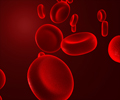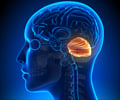- Acetazolamide promotes decreased consumption of carbonated drinks and weight loss - (https://www.ncbi.nlm.nih.gov/pmc/articles/PMC6208055/ )
- Acetazolamide increases locomotion, exploratory behavior, and weight loss following social stress: A treatment for emotional eating? - (https://www.sciencedirect.com/science/article/pii/S2589936820300037 )
- Possible association between acetazolamide administration during pregnancy and multiple congenital malformations - (https://www.ncbi.nlm.nih.gov/pmc/articles/PMC4841426/ )
- Acetazolamide - (https://medlineplus.gov/druginfo/meds/a682756.html )
- A Randomized Trial of Temazepam versus Acetazolamide in High Altitude Sleep Disturbance - (https://www.ncbi.nlm.nih.gov/pmc/articles/PMC3785216/ )
Acetazolamide Medication Information
Learn everything you need to know about Acetazolamide-pronunciation, uses, dosage guidelines, indications, and when to take or avoid it.
Get up-to-date information on side effects, precautions, warnings, and proper storage to ensure safe usage.
Explore Acetazolamide brand names commonly used in India and internationally, along with detailed pricing information. Consult your healthcare provider for tailored medical advice.
Generic Name : Acetazolamide Pronunciation : (a set a zole'a mide) ICD Code : Y54.5 Therapeutic Classification : DiureticsBrand Names or Trade Names of Acetazolamide
India :
International :
Abzole, Acetamide Tab, Acetamin Tab, Acetariv Tab, Avva Sr-Cap, Avva Tab, Diamox Tab, Iopar-Sr Cap, Synomax Tab, Zolamide Tab
Why is Acetazolamide Prescribed? (Indications)
Acetazolamide is prescribed to treat excess fluid accumulation due to congestive heart failure.It is also used to treat glaucoma or increased pressure in the eye, seizures or epilepsy, mountain sickness, periodic paralysis or muscle weakness, and to reduce the increased pressure in areas surrounding the brain and spinal cord.
When should Acetazolamide not be taken? (Contraindications)
Contraindicated in patients with adrenal gland problems, low levels of potassium or sodium in blood, kidney problems, liver problems, high levels of chloride in blood, electrolyte problems and hypersensitivity.What is the dosage of Acetazolamide?
The dose ranges from 250 mg to 1 g of acetazolamide for 24 hours, usually in divided doses for amounts over 250 mg.Adult- PO Diuresis 250-375 mg/day. Glaucoma; Epilepsy 250-1,000 mg/day. Prophylaxis of high altitude sickness 500-1,000 mg/day. IV Chronic open angle glaucoma 250-1000 mg 24 hrly and Epilepsy 8-30 mg/kg/day in divided doses.
How should Acetazolamide be taken?
It comes as a tablet and capsule, to take by mouth with food. If you are taking the extended-release form of acetazolamide, do not crush or chew the capsules.What are the warnings and precautions for Acetazolamide?
• Caution should be exercised in patients with history of kidney stones, sickle cell anemia, lung diseases, increased eye pressure, respiratory problem, elderly, who are taking other medications, any allergy, during pregnancy and breastfeeding.• It may cause dizziness, drowsiness or vision changes, do not drive a car or operate machinery while taking this medication.
• Limit alcoholic beverages.
• Avoid exposure to sunlight.
• Monitor blood sugar, complete blood cell count regularly while taking this medication.
• This medication should not be used in children less than 12 because it may affect normal growth.
• Caution is advised for patients receiving concomitant high-dose aspirin and acetazolamide, as anorexia, tachypnea, lethargy, coma and death have been reported.
What are the side effects of Acetazolamide?
Most Common - Numbness and tingling in the fingers and toes, tiredness, loss of appetite,dry mouth, headache, nausea, vomiting, stomach pain.Central Nervous System- Occasional instances of drowsiness and confusion, and seizures.
ENT- Taste alterations (parageusia) especially for carbonated drinks, sore throat, ringing in the ear, and Some may also experience blurred vision but this usually disappears shortly after discontinuing the medication.
Genitourinary- Blood in stool/urine, dark urine, painful urination and excessive passage of urination.
Metabolic- Liver impairment, increases the risk of kidney stones, metabolic acidosis, increased thirst, and electrolyte imbalance.
Skin- Hives, unusual bleeding or bruising and photosensitivity.


















